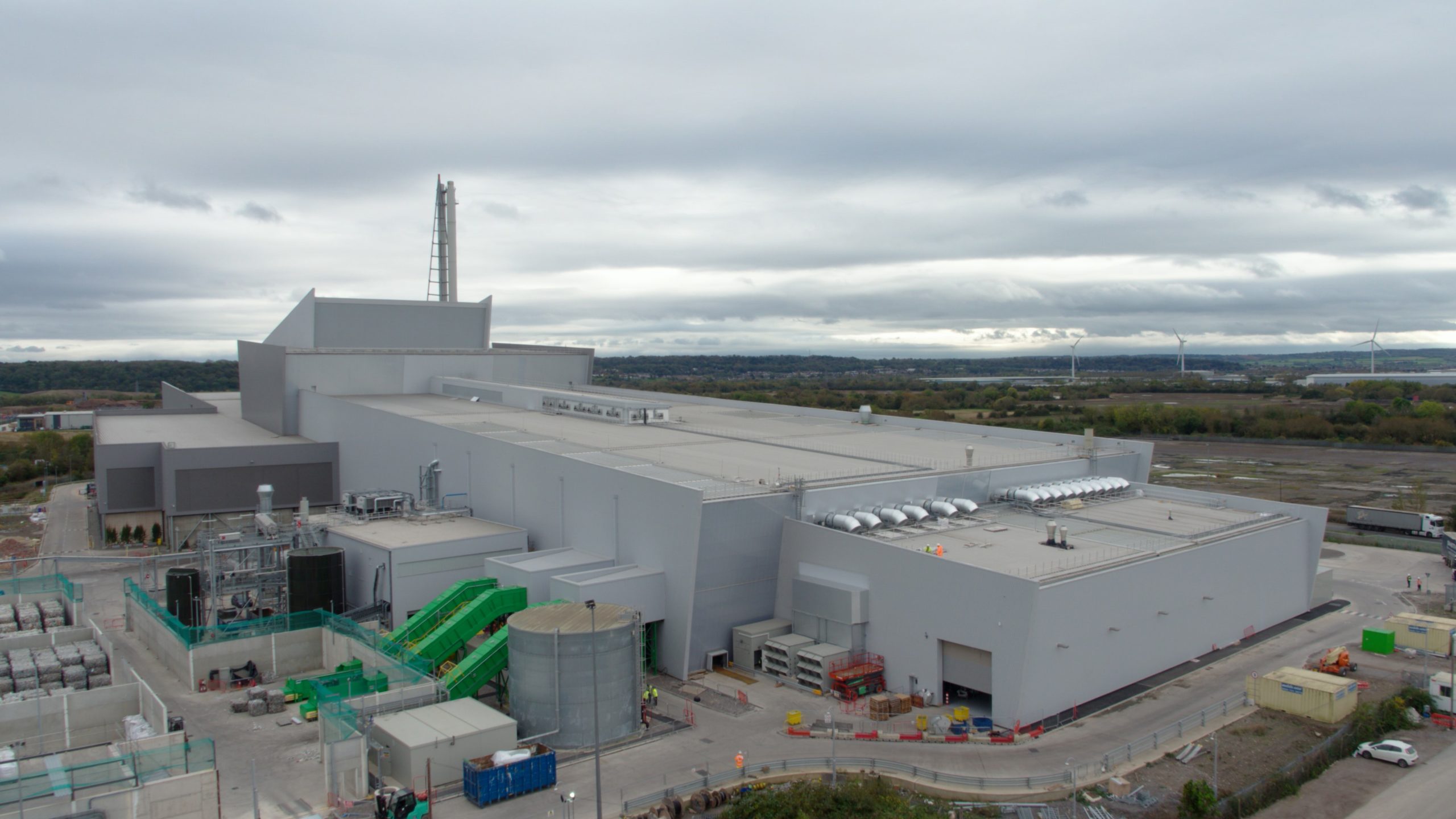Bristol’s port today enjoyed a double green boost, with the opening of two major industrial plants, one a massive waste-to-power generator, the second synthesising biomethane for heavy trucks.
Waste & resources minister Jo Churchill cut the ribbon this afternoon at Taunton-headquartered Viridor’s £317 million Resource Recovery Centre in Avonmouth, a mere six miles from the even cultier harbour of Portishead.
Diverting 320,000 tonnes of end-of-life, non-recyclable plastics and waste from landfill, the facility will also generate over 300 GWh of electricity every year, enough to power 84,000 homes.
On its own, Viridor claims, the plant will trim UK exports of waste plastic by 8%, slashing the company’s own shipments overseas by 90%.
Five more plants of Avonmouth’s size would eliminate all UK exports of skeggy plastic, the company calculates.
One hundred and twenty-five jobs will be created at the plant, the UK first’s to accommodate plastics reprocessing and an energy plant under one roof. Twenty building firms, mainly in the West Country and south Wales, were contracted for its construction.
In November Viridor published analysis demonstrating that around 1.3 million tonnes of CO2 emissions a year could be saved by increasing Britain’s recycling of plastic packaging to 70%, up from 51% today.
Beth Gibbons, your dummy port is ahead
Viridor CEO Kevin Bradshaw said: “The scale of what we are doing at Avonmouth shows that ending the export of plastic waste from UK shores can become a reality.
“It is right that consumers who pay for recycling see the benefits in local investment and jobs.
“We are leading this effort. DEFRA’s ambitious and vital policy reforms have the potential to create the stable investment environment to realise this ambition and align job creation with doing the right thing for the environment.”
Viridor operates 47 UK sites. Its ten making energy from waste (EfW) together produce enough power to light and heat over 500,000 homes.
Meanwhile also in Avonmouth, synthesised gas innovator CNG Fuels opened its biomethane plant, capable, it claimed, of refuelling up to 80 heavy trucks per hour.
The firm runs a network of eight refuelling stops for renewable biomethane across Britain, enabling low carbon deliveries to be made from – in their words – “Inverness to Cornwall”. It plans to open twelve more every year.
Demand for renewable biomethane has soared ten-fold since 2017. By 2027, it is predicted to soar a further five-fold. From 2040, Britain will ban selling new diesel trucks.
“Renewable biomethane is today’s only commercially viable market solution,” said CNG Fuels CEO Philip Fjeld, suiting brands who strive to meet growing consumer pressure to cut emissions in fleet logistics and distribution
Brands signed up to use CNG’s Avonmouth pit stop include Lidl, Royal Mail, Amazon and Warburtons.




